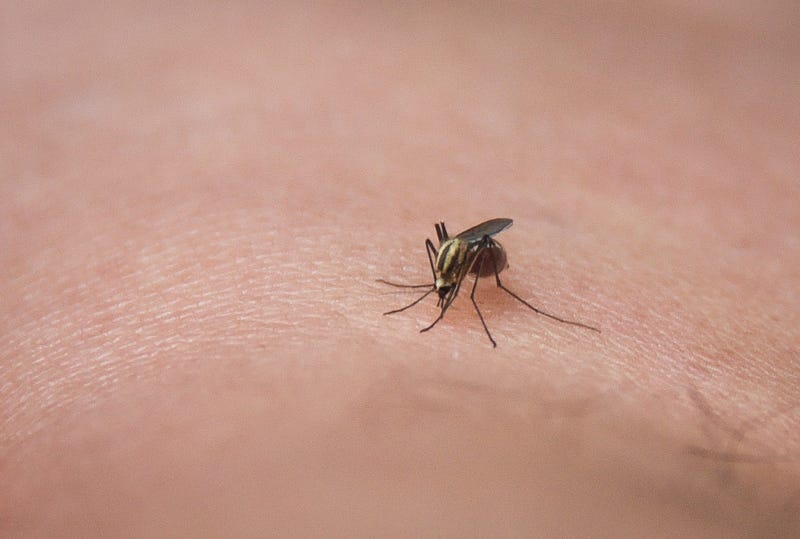
PHILADELPHIA (KYW Newsradio) — Two people in New Jersey have died from West Nile virus this year, according to state health officials.
The New Jersey Department of Health said the two individuals were older adults, one from Cumberland County and the other from Mercer County.
The two deaths are among six recent cases of West Nile virus reported in North and Central Jersey. All of the patients are 50 or older.
These cases are in addition to two reported earlier this summer in Middlesex and Union counties. Both patients were treated and released. The department also reported in July the state’s first case of eastern equine encephalitis (EEE) in Atlantic County. The individual — a minor — was treated and released.
Last year, New Jersey saw 14 cases of West Nile virus and one death.
Mosquito-borne diseases are on the rise nationally, so people are urged to take precautions.
“The best way to prevent these diseases is to avoid mosquito bites by using insect repellent, protective clothing or gear, and avoiding peak mosquito hours,” Health Commissioner Kaitlan Baston said in a statement.
It is also important to remove outdoor pools of standing water to prevent mosquitoes from breeding.
“The main sources for mosquitoes around the home are most often small water-holding places and containers that could easily go unnoticed, such as folds in tarps, pet water bowls, flowerpots, recycling bins, children’s toys, buckets, and even downspouts with corrugated extension tubes,” Environmental Protection Commissioner Shawn M. LaTourette added in a statement. “Property owners should be alert to these sources and conduct weekly inspections to ensure they are free of standing water.”
Most people infected with West Nile virus or EEE do not have symptoms. Those who do develop symptoms may experience fever, chills, body aches and joint pains. Severe symptoms include headache, neck stiffness, vomiting, diarrhea, seizures and fatigue, and could lead to neurological illnesses such as meningitis or encephalitis.
Older adults and people with weakened immune systems are at greater risk.
